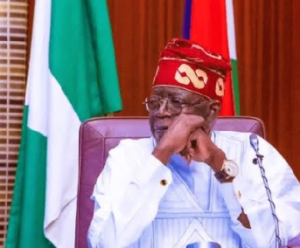Presidency Releases Update on Nigeria’s Total Debt Situation Under Tinubu: See Details
Presidency Releases Update on Nigeria’s Total Debt Situation Under Tinubu: See Details

President Bola Tinubu
The presidency has clarified Nigeria’s debt situation under President Bola Tinubu’s administration, addressing concerns about rising debt levels.
According to the presidency, contrary to reports suggesting an increase in Nigeria’s debt stock, there was actually a 15% decrease in the nation’s debt stock in dollar terms during the first quarter of 2024.
The administration emphasized its commitment to debt repayment and financial stability. This clarification came from Dada Olusegun, Special Assistant to President Tinubu on Social Media, in response to a report by StatiSense that detailed Nigeria’s debt profile from the time of Shehu Shagari to the present administration.
Olusegun explained that the current rise in public debt is primarily due to economic factors rather than increased borrowing, and highlighted the administration’s efforts to reduce the debt profile. He assured that President Tinubu’s government is dedicated to transparent and responsible economic management.
Key points shared by Olusegun on his X account under the heading “Debunking the Myth: Nigeria’s External Debt Under President Bola Tinubu” include:
– A 15% decrease in Nigeria’s total debt stock in dollar terms during Q1 2024, contrary to claims of rising debt.
– The increase in public debt is mainly attributed to economic factors such as:
– Naira depreciation (from N899.39/$ to N1,330.26/$)
– Interest rate fluctuations
– Securitization of Ways and Means
– The current administration inherited N22.7 trillion in Ways and Means, which is now under audit and securitization.
– The current Ways and Means deficit is N3.4 trillion, balanced by surpluses from revenue-generating agencies.
– Nigeria’s external debt (Federal Government only) is $42 billion, with $20.82 billion owed to multilateral creditors and $5 billion to China.
– Economic reforms have influenced foreign exchange rates and interest rates, impacting the public debt.
– The government remains capable of meeting its debt obligations, supported by a reformed financial system.
The presidency noted that including Nigeria’s external debt figures offers a clearer perspective on the country’s overall debt situation and the factors driving recent increases in public debt.
TRENDING SONGS
 Wedding Called Off: How Lady Cancels Wedding After Finding Out Finance’s Affairs With Her Bestie
Wedding Called Off: How Lady Cancels Wedding After Finding Out Finance’s Affairs With Her Bestie
 Heartbreak in Ikeja: Lady Weeps After Fufu Found in New Phone Package
Heartbreak in Ikeja: Lady Weeps After Fufu Found in New Phone Package
 Twist of Fate: Man Who Questioned Phyna’s ₦1Billion Demand Mourns Brother in Dangote Truck Crash
Twist of Fate: Man Who Questioned Phyna’s ₦1Billion Demand Mourns Brother in Dangote Truck Crash
 Tragedy in Enugu: Dangote Truck Claims Lives of Family of Five
Tragedy in Enugu: Dangote Truck Claims Lives of Family of Five
 Bangkok Crackdown: Nigerian-Thai Couple in Police Net Over Drug Trafficking
Bangkok Crackdown: Nigerian-Thai Couple in Police Net Over Drug Trafficking
 Family Rift: Reno Omokri’s Ex-Wife Says He Deserted Their Special Needs Son
Family Rift: Reno Omokri’s Ex-Wife Says He Deserted Their Special Needs Son
 The Man Who Sent Money for Two Decades, Only to Return to an Empty Shell
The Man Who Sent Money for Two Decades, Only to Return to an Empty Shell
 See how a young lady was beaten in a village and naked for stealing a goat
See how a young lady was beaten in a village and naked for stealing a goat
 See How Man That Plans to Divorce His Wife, Gets Shocked When She Leaves Him First With Their 5 Kids
See How Man That Plans to Divorce His Wife, Gets Shocked When She Leaves Him First With Their 5 Kids
 Tragic Land Dispute: Man Kills Father in Imo, Pastor Arrested for Rape
Tragic Land Dispute: Man Kills Father in Imo, Pastor Arrested for Rape
Share this post with your friends on ![]()













